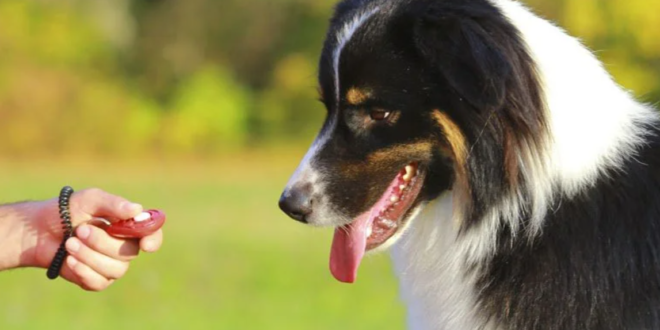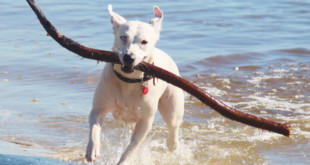Potty Training Older Dog – Potty training is one of the most important tasks for any dog owner. While it is relatively easier to train puppies, older dogs can pose a challenge. If you’ve recently adopted an older dog and they’re not yet house-trained, or if your senior pup is suddenly having accidents indoors, don’t worry! With a little patience and persistence, it is possible to teach an older dog new tricks – including potty training. In this article, we’ll explore the reasons why older dogs may struggle with potty training, as well as some proven techniques to help your furry friend learn the ropes and become a fully house-trained pooch. So, grab your training treats and let’s get started!
Table of Contents
1. Breaking the Stigma: Potty Training for Older Dogs
For some pet owners, the prospect of potty training an older dog can seem daunting. However, with patience, consistency, and these helpful tips, it is possible to break the stigma that only puppies can be trained.
First and foremost, establish a regular potty schedule. Take your dog out at the same time every day and praise them when they go outside. If accidents do happen inside the house, clean them up thoroughly with an enzymatic cleaner to remove any odor that may attract them back to the same spot.
Next, consider crate training your dog. A comfortable and appropriately sized crate can act as a safe space for your dog and help with potty training by limiting their access to areas where they may have accidents. Be sure to introduce the crate gradually and never use it as punishment.
Lastly, be patient and consistent. Older dogs may take longer to learn new habits, but with your guidance, they can still be successfully potty trained. Keep praise and treats on hand to reward good behavior and stay consistent with your potty training routine.
Remember, breaking the stigma of potty training for older dogs requires time and effort but ultimately leads to a happier and healthier life for both you and your furry friend.
2. Overcoming Challenges: Potty Training Techniques for Aging Dogs
Possible post content:
Successful potty training requires patience, consistency, and adaptation to individual circumstances. When it comes to aging dogs, the challenges of bladder control, mobility, and behavior can pose additional obstacles, but with the right techniques and mindset, you can help your furry friend stay healthy, happy, and clean. Here are some tips and tricks for overcoming common potty training issues in senior dogs:
– Determine the causes of accidents: Before you can address the symptoms of potty mishaps, you need to understand the underlying reasons. For example, if your dog has arthritis or hip dysplasia, it may be harder for them to get up and go outside, or they may avoid stairs or slippery surfaces. If your dog has dementia or other cognitive decline, they may forget where they are supposed to go, or they may become anxious and confused when left alone. If your dog has a urinary tract infection or other medical condition, they may have more urgency or frequency and less control over their bladder. By observing your dog’s behavior and consulting with your vet, you can identify the triggers of accidents and devise targeted solutions.
– Modify the environment: Once you know what factors contribute to your dog’s accidents, you can modify the environment to make it more comfortable and accessible for them. For example, you can add more ramps or traction mats to help your dog navigate stairs or slippery floors. You can place potty pads or litter boxes in multiple areas of the house, so your dog doesn’t have to hold it for too long or wait until you’re available to take them outside. You can install a dog door or a ramp on the back door, so your dog can go in and out easily and avoid accidents while you’re away. You can also use pheromone sprays or diffusers to calm your dog’s anxiety and reduce the likelihood of marking or stress-related accidents.
– Reward and redirect: When your dog does go potty in the right place, it’s important to praise and reward them immediately, so they associate the behavior with positive feedback. You can use treats, toys, or verbal praise, depending on what motivates your dog. However, if your dog has an accident, it’s crucial not to punish or scold them, as this can create fear, confusion, and avoidance behaviors. Instead, you can calmly interrupt them and redirect them to the right spot, cleaning up the mess with enzymatic cleaners to eliminate the scent and prevent repeat offenses. With patience and consistency, your dog can learn new habits and overcome the challenges of aging.
3. Patience is Key: Tips for Successfully Potty Training Your Senior Pup
It’s never too late to train your senior pup to use the bathroom outside, but it may require a bit more patience and understanding on your part. Here are some tips for successfully potty training your senior pup:
- Establish a routine: Senior dogs may have a harder time holding their bladder for long periods, so it’s important to establish a regular routine for potty breaks. This will also help your pup associate specific times with going outside.
- Use positive reinforcement: Just like with puppies, positive reinforcement is key when potty training senior dogs. Reward your pup with treats or praise when they successfully use the bathroom outside.
- Consider using a crate: If your senior pup is having trouble holding their bladder, consider using a crate to help with potty training. Dogs instinctively don’t want to soil their sleeping area, so using a crate can help them learn to hold their bladder until it’s time for a potty break.
- Be patient and understanding: Potty training can be frustrating, but it’s important to remain patient and understanding with your senior pup. They may have accidents or take longer to learn, but with consistent training and positive reinforcement, they’ll get there eventually.
Remember, potty training a senior pup is all about patience and consistency. With the right training techniques and a little bit of time, your pup can learn to use the bathroom outside like a pro.
4. Taking it Slow: A Step-by-Step Guide to Potty Training Your Older Dog
Potty training an older dog can be a challenging task, but taking it slow and steady can make the process more manageable. Here’s a step-by-step guide that can help you train your furry friend.
1. Assess Your Dog’s Habits: Before you start training, observe your dog’s potty habits. This can give you an understanding of when he needs to go and how frequently. Take notes on the time of day and how long it takes him to go.
2. Start with a Dedicated Space: Designate one area of your home or yard for potty breaks. This will create consistency and let your dog know where he should go. Keep the space clean and free of distractions.
3. Use Positive Reinforcement: Reward your dog with treats or praise every time he goes in the designated space. This encourages good behavior and helps him associate going in the right place with positive experiences.
4. Gradually Extend Time: Start with short potty breaks and gradually increase the time your dog spends in the designated space. This helps him get used to the idea of going in a specific area, and makes it easier for him to hold it for longer periods.
Remember that potty training an older dog takes patience and consistency. By taking it slow, your furry friend will be well on his way to mastering his potty habits.
5. Celebrating Success: Reaping the Benefits of a House-Trained Senior Dog
Once your senior dog is house-trained, it’s time to celebrate! This is a huge milestone and a sign of a positive, healthy relationship between you and your furry friend. As you reap the benefits of your dog’s newfound potty skills, consider some ways to mark this achievement.
First, why not treat your senior dog to some extra special grooming? A new haircut, a favorite toy or treat, or a relaxing massage can all be wonderful rewards for a dog who has worked hard to learn good habits. Additionally, consider taking your dog on a fun outing – maybe a hike or a trip to the dog park – to show them how much you appreciate their good behavior.
Of course, the biggest benefit of a house-trained senior dog is the peace of mind it provides for you as an owner. No more messes to clean up or constant worry about your dog’s behavior indoors. Instead, you can enjoy a clean, comfortable home and a loving, well-behaved companion. Congratulations on this milestone – you and your senior dog are a great team!
Potty training older dogs might be a bit challenging, but with patience and dedication you can help them learn and develop this important skill. Training your older dog – a furry member of your family – can pay off and is well worth the effort! Your pet will thank you.
 Treat For Dog – Brain Training for Dogs, Dog Training & Obedience Discover Treat For Dog and get your pup on the path to smarter, happier, and healthier living with brain training for dogs.
Treat For Dog – Brain Training for Dogs, Dog Training & Obedience Discover Treat For Dog and get your pup on the path to smarter, happier, and healthier living with brain training for dogs.




